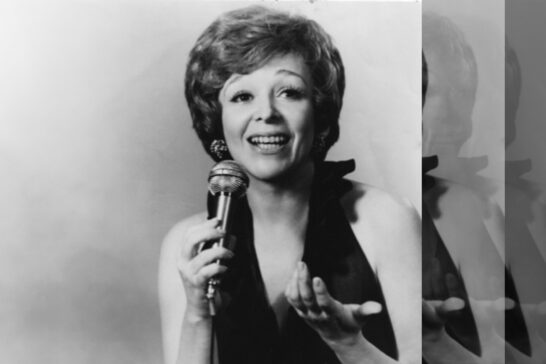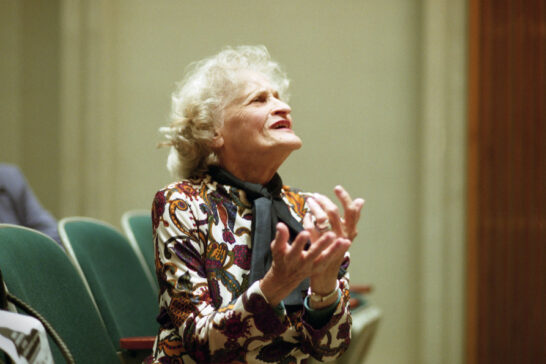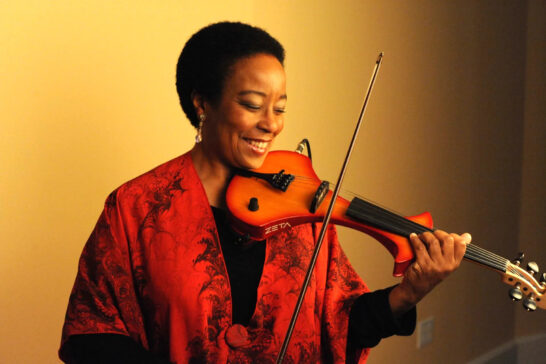Celebrating Black History: Curtis Faculty Member Todd Duncan


Celebrated operatic baritone, actor, Curtis faculty member (1977–90), and pioneering civil rights activist Robert Todd Duncan (1903–98) is often considered one of the great Black artistic pioneers of the 20th century. Born in Danville, Kentucky, on February 12, 1903, the only child of John C. Duncan, a farmer, and Letitia Cooper Duncan, a piano teacher and church musician, he earned his bachelor’s degree at Butler University in Indianapolis in 1925 and his master’s degree at Columbia University Teachers College in 1930.
In 1933, Mr. Duncan made his professional stage debut in Mascagni’s Cavalleria Rusticana at the Mecca Temple with the Aeolian Opera, a Black opera company in New York. He was personally selected by George Gershwin to originate the iconic lead role in Porgy and Bess and went on to perform Porgy more than 1,800 times in his career following its initial premiere run at the Alvin Theater in New York City. He also recorded an original cast album on Decca Records with the original Bess, Anne Brown.
 Breaking the color barrier, he was instrumental in desegregating opera houses and theaters at a time when African Americans were forced to either attend performances for Black audiences only or use side entrances and sit in the balcony sections. A firebrand for change, he led the protest against the National Theatre’s segregation policy in Washington, D.C., when the Porgy and Bess cast were to perform there in 1936, stating voicing his firm belief that he “would never play in a theater which barred him from purchasing tickets to certain seats because of his race.” The management yielded to the cast’s demands, and the opera became the first integrated performance at the National Theatre. [1]
Breaking the color barrier, he was instrumental in desegregating opera houses and theaters at a time when African Americans were forced to either attend performances for Black audiences only or use side entrances and sit in the balcony sections. A firebrand for change, he led the protest against the National Theatre’s segregation policy in Washington, D.C., when the Porgy and Bess cast were to perform there in 1936, stating voicing his firm belief that he “would never play in a theater which barred him from purchasing tickets to certain seats because of his race.” The management yielded to the cast’s demands, and the opera became the first integrated performance at the National Theatre. [1]
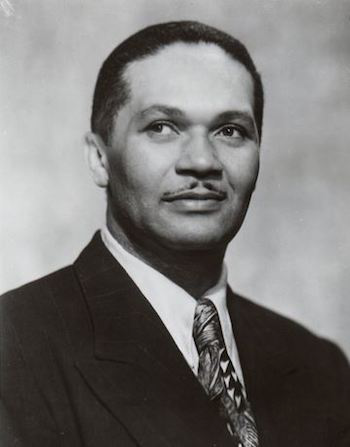
In 1936, Mr. Duncan traveled to London to perform at the Theatre Royal, Drury Lane in the heart of Covent Garden as the lead in C.B. Cochran’s musical production The Sun Never Sets, with original music by Cole Porter. When the show ended its West End run, he and fellow cast member Adelaide Hall toured the U.K. with the production. Mr. Duncan then returned stateside, where he taught at Howard University and continued to perform, becoming one of the first Black performers hired by a major opera company. In 1945, he sang the role of Tonio in Leoncavallo’s Pagliacci with New York City Opera with an all-white cast. He performed the role of the bullfighter Escamillo in Bizet’s Carmen with the company later that same year. Mr. Duncan also played the role of Lord’s General in Vernon Duke’s Broadway musical Cabin in the Sky in 1940 and Stephen Kumalo in the first production of Kurt Weill’s Lost in the Stars (1949–50).

Mr. Duncan inspired generations of African American musicians and vocalists as a voice and music teacher. Over the years, he observed hundreds of vocal surgeries to understand the human voice’s physical workings. The methods he taught his students were easily recognizable, becoming known as the “Duncan Technique.” Due to his lasting influence and efforts, significant changes in classical musical performance for Black artists began to take place in the United States. They still can be felt today within academic institutions across the country.
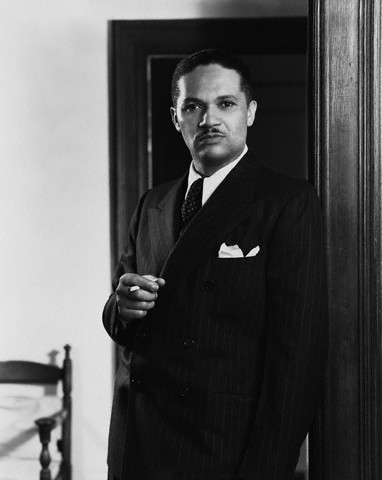 Mr. Duncan starred in two films, Syncopation (1942) and Unchained (1955), which featured the rock and roll classic tune “Unchained Melody” and earned him an Academy Award nomination. He lived in Washington, D.C. for seventy years, left Howard University after fifty years at the peak of his recital (2,000 performances in 56 countries) and opera career, and taught at Curtis for thirteen years. In 1984, he was presented with the George Peabody Medal of Music from the Peabody Conservatory of Music of Johns Hopkins University. During his lifetime, he was awarded the Medal of Honor from Haiti, an NAACP award, the New York Drama Critics’ Award for Lost in the Stars, the Donaldson Award, and he received honorary doctorates from Butler University and Valparaiso University. He was posthumously inducted into the Kentucky Civil Rights Hall of Fame at Kentucky State University in 2005.
Mr. Duncan starred in two films, Syncopation (1942) and Unchained (1955), which featured the rock and roll classic tune “Unchained Melody” and earned him an Academy Award nomination. He lived in Washington, D.C. for seventy years, left Howard University after fifty years at the peak of his recital (2,000 performances in 56 countries) and opera career, and taught at Curtis for thirteen years. In 1984, he was presented with the George Peabody Medal of Music from the Peabody Conservatory of Music of Johns Hopkins University. During his lifetime, he was awarded the Medal of Honor from Haiti, an NAACP award, the New York Drama Critics’ Award for Lost in the Stars, the Donaldson Award, and he received honorary doctorates from Butler University and Valparaiso University. He was posthumously inducted into the Kentucky Civil Rights Hall of Fame at Kentucky State University in 2005.
“The name CURTIS will serve you well for it carries with it dignity, nobility, and its name is known all over this world,” said Mr. Duncan at Curtis’s May 1985 Commencement ceremony. “Today, I challenge you to be grateful for your talents and abilities by accepting them as obligations to be invested for the common good, accepting your special gift as a challenge to achievement.”
Read Todd Duncan’s stirring 1985 Curtis Commencement speech HERE.
Photos taken from the Curtis Archives and Special Collections. Please visit Curtis Institute of Music Open Archives and Recitals (CIMOAR). Learn more about Curtis’s library and archives HERE.
[1] “Porgy and Bess: Today in History, September 2″. Library of Congress. December 6, 2007. https://www.loc.gov/item/today-in-history/september-02/.
Photo Credits: 1.) WBSS Media 2.) Mr. Duncan coaching Bavat Marom in Field Concert Hall at a Curtis in a 1992 masterclass; Don Tracy. 3.) The Internet Archive, Gershwin: Porgy and Bess 4.) Mr. Duncan during a masterclass with James Burgess at Field Concert Hall in 1998; Robin Miller. 5.) Todd Duncan, circa 1930s. Image by © John Springer Collection/CORBIS.
